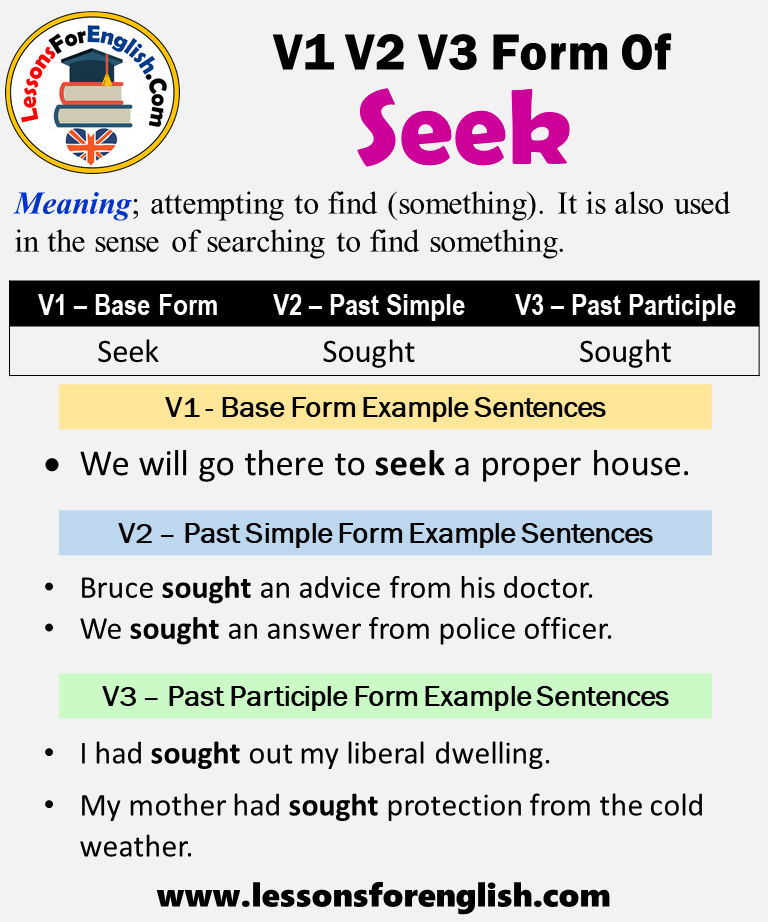
However, the correct form comes down to whether or not you are talking about an event in the past, present, or future. Is It Sought or Seek?īoth words are correct: sought and seek are both proper forms of the verb. “I have sought the answer” is the correct form, whereas “I have seeked the answer” is incorrect. For example, you would use the word “sought” any time you wanted to describe an action that has occurred in the past or an action that has been completed. The proper usage of the word “sought” is as the past tense or even the past participle of seek.


However, in short, the past tense of seek is sought in any context we will discuss context later on in the article. This is part of the problem with English that was discussed earlier, in that the irregular forms of words and the exceptions to the rules often outnumber the normal rule-following words. According to the Merriam Webster Dictionary, the word seek can be defined as, “to go in search of: look for, to try to discover.” Some secondary meanings include “to resort to or go to,” “to try to acquire,” or “to make a search or inquiry.” Overall, there are nine commonly accepted definitions of the word “to seek” in both the transitive and intransitive forms.Īccording to, the correct conjugation for the past tense of the verb “to seek” is actually “sought.” While the third person singular present tense of the verb is “he/she/it seeks,” the past tense completely changes the spelling, and the form seems to be that of an irregular verb.
IRREGULAR PAST TENSE OF SEEK HOW TO
To first understand a word, its history, and how to use it properly, it is important to first define what it actually means. In this article, let’s explore our word of the day, the infinitive “to seek,” learn its proper use, how to use its past tense, look for its synonyms, and learn its etymology and context. American English is an etymological mashup of several different languages, which causes several common grammar mistakes. Part of the reason for this is that English grammar borrows (or just completely steals) most of its grammar from other languages. The English language is widely considered to be one of the most difficult languages to learn just based on the fact that it tends to struggle with following most of its own rules. From complicated verb forms to noun declensions that cover both singular, plural, gender, and case, to the lists of pronouns that older languages like Latin supply. Anyone who has ever studied a second or even third language can attest to the fact that grammatical rules can be the most difficult part to learn, especially if you are trying to learn English. However, language can also pose several challenges due to the fact that languages often do not follow their own rules.

Learning languages can be a really exciting way to learn about a different culture, its country, and its people.


 0 kommentar(er)
0 kommentar(er)
